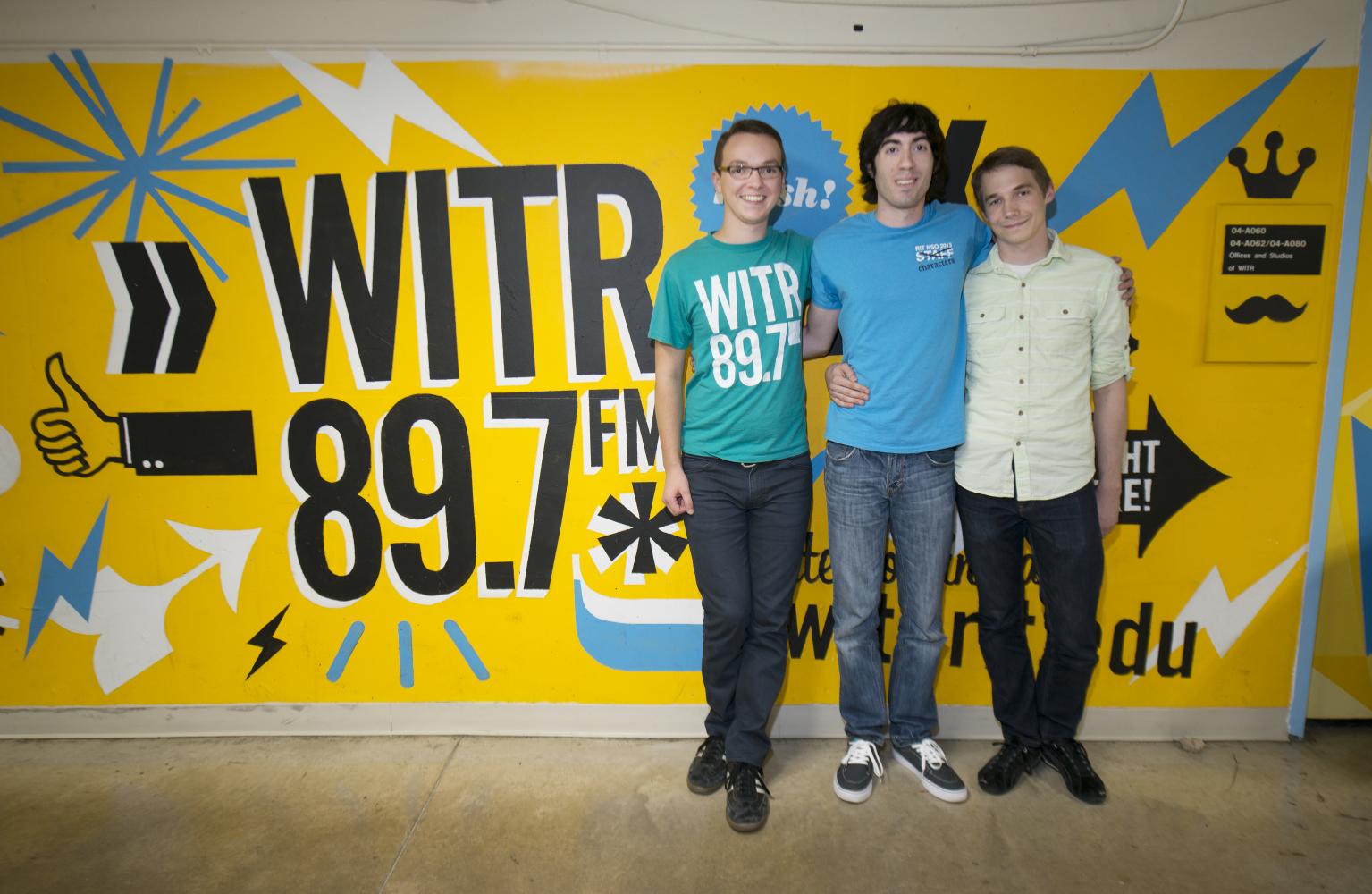For years, RIT’s WITR radio station has been working from a small, cramped studio in the basement of the Student Alumni Union. Years ago, a project proposal involving a bigger and better studio arose. As the idea grew older, no money was raised, so the project did not advance … until last year. RIT students Eli Clampett, Joe Makowski and AJ Colosimo of WITR’s executive board inherited the 3-year-old project plan of a new studio. When the boys took on the project, it was a make or break situation.
“We either needed to get the money and build the studio, or it was going to be taken away from us,” said Makowski, WITR’s student general manager.
The plan involved a much bigger space, an office, an equipment storage area and a more visible location. Overall, this ideal plan had a price tag of $160,000, but the group set a fundraising goal of $80,000. After that, the question was how to raise the money.
While they were trying to come up with a successful fundraising plan, WITR’s general manager from 1980 approached Makowski and told him about a time when WITR needed a new transmitter, but they didn’t have the money. The staff at the timethen decided to suspend their pay and have it diverted to the project. This strategy was soon applied to the current issue, and the executive board voted to donate one pay period to the project.
“It wasn’t that large … only about $400, because we aren’t paid very much. It was more of a symbolic gesture," Makowski said. “We needed to do something relatively drastic to show off our commitment to it.”
Clampett, WITR’s sports director, noted that despite being away on co-op, he was inspired to donate his pay as well.
WITR broadcasted the opportunity to donate with its Listen UP: A Campaign to Bring the Sound Up from Underground. Students, faculty and alumni alike contributed to the cause, including former Senior Vice President of Student Affairs Mary Beth Cooper and President Bill Destler. With a total of over 300 gifts ranging from $5 to $5,000, WITR was able to raise all of the money it needed within last year alone.
The point that the students were trying to make was that there are things worth donating to at RIT; what a portion of RIT students do not realize is that student organizations are not funded by tuition dollars. Fredyne Frey, senior associate director and manager of Campus Life Facilities, said “I think the main reason WITR’s campaign was successful is that the students involved in WITR are passionate about college radio and take a lot of pride in WITR, and they built relationships across the RIT community to tap into the resources available on campus to help make the new studio a reality.”
The new studio will be approximately three times the size of the current one, and will be located on the upper level of the Student Alumni Union. Construction for the studio has already begun.
Clampett, Makowski and Colosimo played large roles in making a 5-year-old idea a reality, but there were many steps and many people involved along the way.
“We relied on the faith and money of ourselves and our students on staff and [the] public itself. We relied a lot on Freddie’s [Fredyne's] ability to help coordinate what we were doing and give us ideas. We relied a lot on our advisor Carol [Reed] to navigate the politics of RIT, which can be complicated. We started it and have seen it through, but along the way RIT showed a lot of support.”








